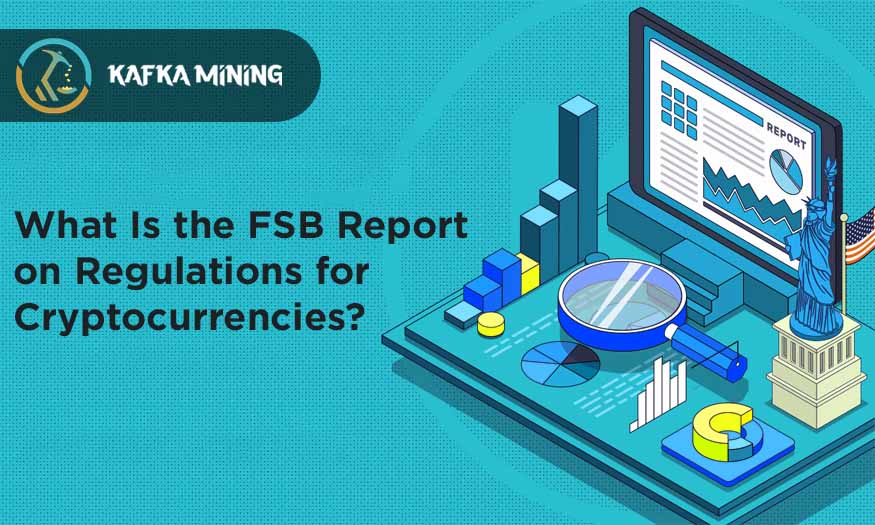
Explanation of the FSB Report on Crypto Regulations
The G-20 nations, which represent the 20 countries with the largest economies, were presented with a regulatory framework for cryptocurrencies by the Financial Stability Board (FSB), a worldwide financial authority, highlighting concerns about crypto markets and activities. The plan seeks for explicit guidelines describing risks and compliance for crypto regulation as well as tougher regulation of crypto assets, specifically stablecoins.
In October 2022, the FSB chairman turned in the report in advance of talks with important decision-makers in Washington, D.C., as well as the approaching G-20 global summit. The study also contains a list of inquiries seeking feedback from the general public to assist shape the suggested set of legislation.
Current Regulatory Challenges for Crypto Assets
The report, International Regulation of Crypto-asset Activities, begins by outlining the current difficulties and dangers associated with regulating the cryptocurrency industry. It claims that "many crypto-asset activities and markets are not compliant with applicable regulations or are unregulated."
The study goes on to explain why a firm stance on cryptocurrency regulation is necessary. Investors have seen their holdings decline—and, in some cases, disappear—due to the risks taken by some crypto companies as the current crypto winter is in full force. According to the FSB, "These vulnerabilities were reinforced by a lack of transparency and disclosures, inefficient governance, inadequate protections for consumers and investors, and flaws in risk management."
The FSB report targets stablecoins because they "may pose material concerns to financial stability." In line with its proposal for stablecoin regulation in July 2022, the FSB has taken a tough position on the cryptocurrency. Stablecoins are viewed as a danger to present central banks and national financial systems since they try to replicate the pricing of real-world assets (like the U.S. dollar).
The paper also makes an effort to break down some of the subtleties of the many ways that crypto assets can be used, as some cryptocurrencies are in compliance with rules right now while others are not. The absence of classification for crypto assets is another difficulty for regulation.
One of the main problems is that cryptocurrency businesses might provide a variety of services (including trading, lending, custody, and brokerage services) that need to be governed separately. Instead of operating under a single corporate umbrella, traditional finance organizations that provide these services are often regulated as separate service providers.
The cross-border nature of crypto-assets creates regulatory, supervisory, and enforcement issues, the paper concludes.
Proposed Framework for a Regulatory Approach
Starting with the guiding premise of "same activity, same risk, same regulation," the FSB suggests a strategy for creating a regulatory framework for digital assets. This entails extending current laws from the traditional financial sector to digital currency assets and digital currency businesses that provide lending, trading, and brokerage services.
The report makes two primary recommendations:
In order to "regulate, supervise, and oversee crypto-asset operations and markets," the FSB is developing a comprehensive set of proposed measures. These suggestions will develop further, but they are intended to assist G-20 nations in establishing precise international rules to control all cryptocurrencies and intermediaries (such as crypto exchanges).
Updates to the Stablecoin Arrangement: The FSB created a document called the Stablecoin Arrangement that has been updated numerous times. Among other changes, the proposal "requires these stablecoin issuers to provide robust legal claim, guarantee timely redemption at par into fiat, and maintain effective stabilization mechanisms." In essence, the FSB is advocating a centralized stablecoin governance model, with responsible parties for regulation and timely redemption for users who want to convert their holdings into fiat money.
The FSB is urging the G-20 countries to carefully consider crypto regulation and to move quickly to impose on crypto assets the same rules that apply to traditional financial markets. Considering that some of cryptocurrencies' uses and functionalities are extremely different from those of any traditional asset, the board is also urging for legislation specific to cryptocurrencies.
The Financial Stability Board (FSB) is what, exactly?
The Financial Stability Board (FSB) is an organization that oversees the global financial system and provides regulatory direction to central banks and decision-makers worldwide. The FSB seeks to provide financial stability on global financial markets. The G-20, which consists of the 20 largest economies in the world, receives frequent updates from the FSB, despite the fact that it is intended to support all world economies.
Can the FSB oversee cryptocurrency regulation?
No. But the FSB is in charge of keeping tabs on international financial markets and making formal recommendations to the world's top economies about financial rules. Included in this are suggestions for regulating cryptocurrency and businesses associated with them.
The Ending
According to the FSB study, the proposed regulations would be completed in the middle of 2023. These ideas will provide regulators and policymakers with clear guidance on how to lawfully control cryptocurrencies and intermediaries that offer crypto-related services. The FSB will continue to keep an eye on the operations of decentralized finance (DeFi) marketplaces and businesses in addition to its current focus on stablecoins and the crypto market.
Due to the enormous dangers associated with such linked assets, the FSB is adopting a hard stance toward cryptocurrencies, particularly stablecoins. It specifically mentions Terra (LUNA) because it is the most severe example of a very hazardous stablecoin failing and destroying billions in value almost overnight that has been documented to date. Before these regulation measures are finalized in 2023, the FSB will continue to provide advice to international financial authorities.
Leave a Comment